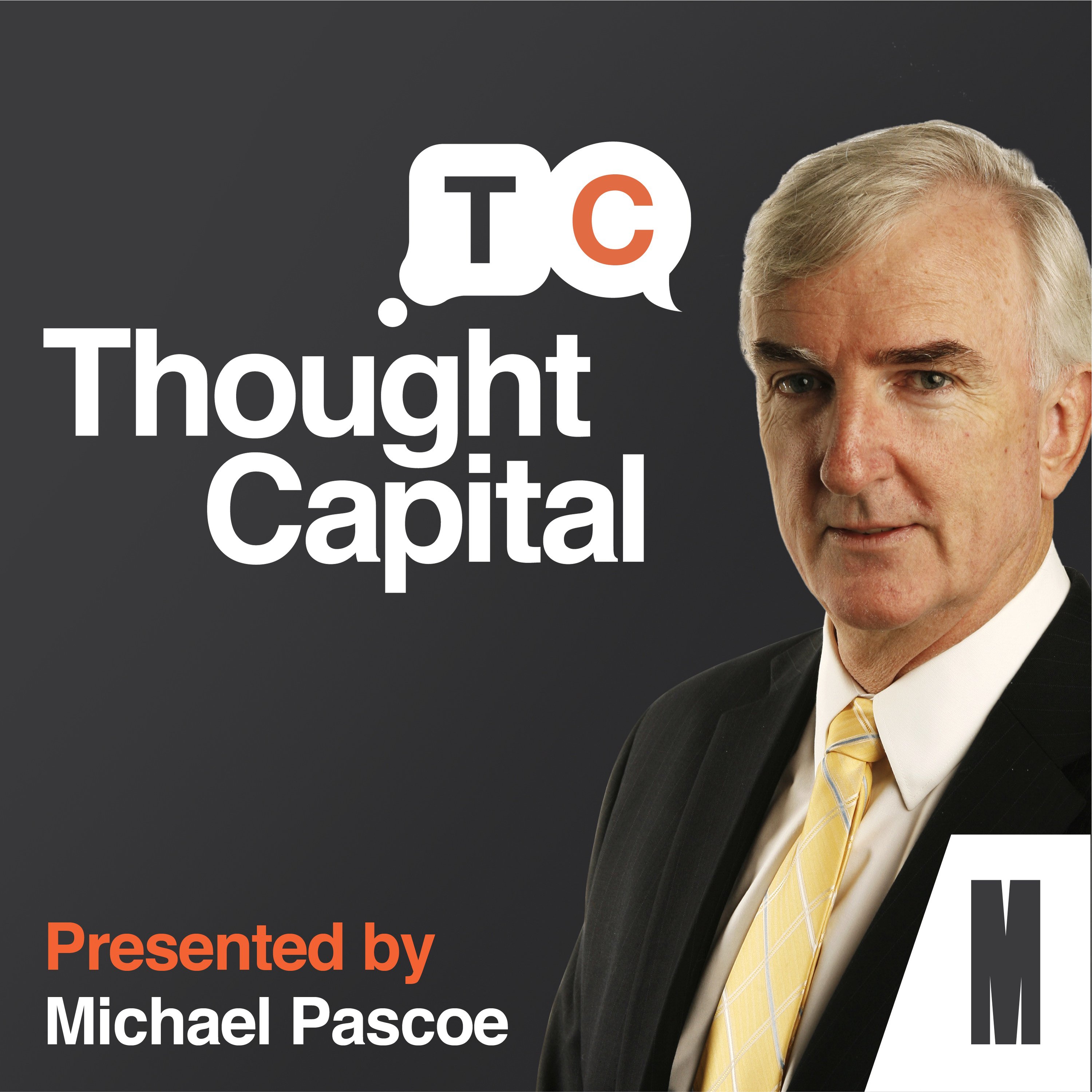Michael Pascoe: Welcome to Thought Capital. The podcast that delves into the wealth of ideas created by the experts at Monash Business School in Melbourne, Australia …
Michael Pascoe: For many years, the gigantic, growing Chinese consumer market has glimmered on the horizon like a giant gold mine for Western companies. But while many have been successful in doing business in China, perhaps a great many more have not.
Hean Tat Keh: The Chinese take a long time to get to know a person. They want to understand how you operate, you as a person, before they are willing to conduct the business deal with you.
Michael Pascoe: The cultural differences, language barriers, contrasting customs can be daunting to conquer, not to mention a different legal and political system. To guide us through the Chinese business environment and what Australians need to know to prosper in the Chinese market is Professor Hean Tat Keh from the Department of Marketing. Welcome Professor Tat.
Hean Tat Keh: Thank you for having me.
Michael Pascoe: There is an entire industry devoted to how to do business in China. Is it worth half the paper it’s printed on, those books?
Hean Tat Keh: Well, I suppose this industry is there because there is a need in the first place for foreign business people to better understand the Chinese business people and the Chinese business environment. But having read a few of these books myself, obviously, the quality varies. There are some that are very, very good, and some that are rather slapdash and not really worth the paper that it’s printed on.
Michael Pascoe: You’re originally from Malaysia; overseas Chinese. But you’ve studied in, worked in, taught in China, and obviously devoted a large part of your life to researching and working on it.
Michael Pascoe: What do you see as the main differences between doing business in China and doing business in Australia? What are the first ground rules you got to get right?
Hean Tat Keh: Obviously in China, one would have to understand the economic environment, the legal environment, the political environment, the technological environment, which are rather different from what they are in Australia and many other developed countries. China has one of the oldest civilizations in the world going back to close to 5,000 years. The Chinese are very proud of that, you know, they do know their history.
Hean Tat Keh: But somewhere along the way, I suppose, things changed, especially in late 19th and early 20th centuries. You know, there were historical issues, political issues. Other nations made far better progress than the Chinese did. But since the late ’70s, when Deng Xiaoping opened up the market, things evolved very quickly. Since then, I suppose, many other foreign companies saw this opportunity in China and want to get a piece of the action.
Hean Tat Keh: But I would caution them not to go in too quickly. One has to have a good understanding of how the Chinese mind works.
Michael Pascoe: That is the big question. You’ve had the benefit of seeing it as an outsider and then an insider.
Michael Pascoe: How do you answer that question? The difference between how the Chinese mind works and the average Australian’s?
Hean Tat Keh: I suppose the biggest difference in that sense is the Chinese culture. The Chinese mindset is informed by the culture that they have had for the past 5,000 years. Probably the most important aspect of Chinese culture to understand is Confucianism. One has to have moral authority. So, that will impact the way one behaves. So, they are more collectivistic in that sense, as opposed to being individualistic.
Hean Tat Keh: The Chinese also emphasizes hierarchy. So, there are several aspects of Chinese culture that are informed by Confucianism, and I think the Australian business person would do well to try to understand.
Michael Pascoe: That’s the theory behind it. The practical application though …
Michael Pascoe: I’m an Australian businessman. I think I’ve got a bit of mouse trap to sell in China. I like taking shortcuts. How do I do it?
Hean Tat Keh: Shortcuts I would advise against mainly because the Chinese tend to have a long-term view of things.
Hean Tat Keh: You know, we would have come across stories or heard about anecdotes about how some Western people went to China assuming that once we have a legal contract drawn up, things will be carried out as per the contract. But again, the Chinese mindset is slightly different. This is not to say that they would disregard a legal contract, which would have been drafted after some negotiations that go on beforehand.
Hean Tat Keh: But I guess here arises the concept of “guanxi” that many of you would have heard about. Simply translated, guanxi is just about relationships, but it actually goes a lot deeper beyond just this word “relationship.” Guanxi essentially comes from two Chinese characters. “Guan” refers to the gate or the door. And “xi” has the implication of also a bit of hierarchy. So, you are trying to open the door into this hierarchy to be connected to them. And that’s very hard, particularly if you’re an outsider and you have got no one to introduce you. They have different levels of guanxi.
Hean Tat Keh: So, I suppose blood ties would be the strongest because then you are seen as family and there will be trust there. Implicit. Close friends, you know, people from the same village for example. You know, people that they have known since childhood. Friends that are introduced by close friends. That would form the third layer of guanxi. And finally, you would have strangers or acquaintances, if you like.
Hean Tat Keh: So, the Chinese take a long time to get to know a person. They want to understand how you operate, you as a person, before they are willing to conduct the business deal with you because a lot of it is based on trust. If I don’t know you, even if there’s a contract, right? Simply because you’re based in a different country and I’m here, then whichever party breaks that contract, then both parties would suffer.
Hean Tat Keh: But if I know you as a person, as somebody who is trustworthy, you know, I understand your family situation, your company situation beyond just the accounting numbers, right? I have a good understanding of how things are in your situation and likewise, you have a good understanding of my situation. And then, with that understanding, we can then seal the deal and go deeper.
Michael Pascoe: Isn’t there a danger though that … Australian business people they understand that much. And so, they go off to China, and they have dinner and drinks, maybe bring their perspective partner to Australia, do those things and think, “That’s it. I’ve got guanxi. Let’s get that contract signed,” and rely on the guanxi too much when actually it’s not there. And things go apart very quickly, and they might be taking the legalities …
Hean Tat Keh: True. On the surface, if you were to visit China as a foreigner, they would be very warm and welcoming. Trust takes time to build. You know, it’s not done over a meal or a drink. It could take months or maybe even years before both sides understand each other very, very well.
Michael Pascoe: Let’s be blunt. They can find that, despite the contract, the contract’s not honoured, that there are levels of difficulty in doing business in China, whether bureaucratic, or that lack of trust that are hard to overcome.
Michael Pascoe: How do they get to the next stage?
Hean Tat Keh: I suppose one has to be prepared to negotiate for some time before anything actually happens, anything tangible happens. The negotiation process, I suppose, can be broken down into three parts: the initial stages or pre-negotiation, the actual negotiation itself, and post-negotiation.
Hean Tat Keh: The pre-negotiation stage is whereby they get to know you, right? So, this is where the guanxi actually starts to get built, okay? They have to learn to trust you as a viable business partner before they actually do business with you. Both sides would send both their managers or their people to talk to each other, to visit the factories, etc., etc.
Hean Tat Keh: Now, the commercial negotiation itself would involve things like the prices, the terms of the contract, the distribution channels, etc., etc., right? So, these are the technicalities that would have to be worked out very closely. And then, after they have come to … I suppose, drawn up their legal contracts, then the actual thing that happens would be, “Now that we have a contract and we are starting to do business … ” then they would also closely observe, “How is this turning out as a business partnership?”
Michael Pascoe: A complaint I have about Australian business and Australian diplomacy is that we will send someone overseas for a year or two, and then pull them out again.
Michael Pascoe: If you look at the great British Hongs that made success in China, there was a job for life. We haven’t got that mind set. Can we succeed despite it?
Hean Tat Keh: Well, I certainly hope so given the importance of the Chinese market to the Australian economy, right?
Michael Pascoe: A lot of Australian business has focused on export of resources and minerals. As the Chinese economy moves from export-driven growth to consumption-driven growth, it provides further opportunities for Australian companies to exploit.
Michael Pascoe: The middle class is booming and their tastes are specific. And there are also more geographic opportunities. Instead of concentrating just on the larger cities, we could be targeting other areas both when it comes to what we sell, but also where we sell it.
Hean Tat Keh: China also, I think, has a strong need for health care and aged care. That’s something that they’re not very experienced in doing. And I suppose if Australian companies take the right approach to this industry as well, they would see a lot of potential.
Hean Tat Keh: But besides services, certainly other sectors that could benefit the Australian companies would include the food sector and dairy products. My own take on it would be if the Chinese is going to the trouble of buying an imported product, let’s say red wine, then they would not want something that is low-end. They would be willing to pay for something that is high-quality, right?
Hean Tat Keh: So, which is why, for example, Treasury Wines has had mixed success in the Chinese market among their Chinese customers. While the high-end brand like Penfold would do well because it is premium, it’s luxury. And the Chinese are willing to pay top dollar for such wines. Australian brands that are top notch quality would still continue to find China to be a very welcoming market, but those that are at the low end and trying to make it based on price alone will, I think, struggle a lot more.
Michael Pascoe: A lot of the success that Australia has enjoyed with China, it was stuff that China wanted to buy. And so, it’s been the keenness of the buyer rather than the skill of marketing of the seller. Have we got to move to that next level?
Michael Pascoe: I mean, Penfolds is doing it. Yes, they’ve got more red ink on their labels, and flash bottles, and all sorts of things. But the average, would-be Australian business person, they’ve got to become better at selling-to rather than waiting for an order-from.
Hean Tat Keh: Absolutely. This is where marketing comes into the picture.
Hean Tat Keh: When there is high demand, anything would sell well. But when things get a lot more competitive, good marketing skills become very, very important. So in marketing we talk about, not only the four P’s of the product, the price, promotion, and place, you know, the positioning of the product is also very, very important, right? So how do you position your brand, especially if it’s new, to the Chinese market. How do you build a bran, you know? And that would be informed by a number of factors, including who is your partner in China that is helping you to distribute or to market the product to the Chinese marketplace.
Hean Tat Keh: We cannot think of China as just one big market. That would be a major mistake. Rather, if you think about it, China has 22 provinces. They’ve got two special administrative reasons, that would be Hong Kong and Macau. They have four municipalities, that would be Beijing, Shanghai, Chongqing, and Tianjin. And they would have five autonomous regions, mainly in the northeast of the country. Even among the big cities, you know, we have simple classifications like Tier-1 cities like Beijing, Shanghai. And then you’ve got the Tier-2 cities, Tier-3 cities.
Hean Tat Keh: So, the uninformed Australian business person looking at China would say, “Well, definitely the customers that can afford to pay for products would be living in the Tier-1 cities.” Yes and no. The Tier-1 cities’ customers, they would be very well-informed. They live in the major cities. They’ve got access to information. And that’s where a lot of the foreign brands also target. So, they’ve got choices among these varieties that they have on the shelves of the supermarkets.
Hean Tat Keh: The second and third-tier cities would appear to be less informed, but nonetheless that’s where a bulk of the middle class is. The middle class, I would argue, is the most important part of any economy. They are the ones that actually drive consumption. Without the middle class, you only have a very small proportion of the high end of the social class, the upper classes. But even though, you know … it could be 3%. Obviously, in a country with 1.3 or 1.4 billion people, it’s still a lot of people. But then, they would be going for the super premium brands, the high-end luxury brand.
Hean Tat Keh: Whereas the middle class, they are the ones that already have an apartment, maybe two. They can afford to buy a car, right? And they have excess money that they want to spend on quality products, okay? Goods and services. And this is where we have to pay attention to. So, this particular segment of the Chinese market is growing very, very rapidly. And not all of them live in the Tier-1 cities. Many of them live in the second-tier cities. So, it is amazing how little-informed we are about the diversity and the pockets of growth in the Chinese economy that we are not aware of.
Michael Pascoe: Australia has been increasingly conducting business with China since the ‘70s. If we compare society then and now, technology, especially the internet, has brought revolutionary change to how we communicate, trade, and deliver goods. And in many ways, China is way ahead of us.
Michael Pascoe: Do Australians underestimate just how switched-on, interconnected, and advanced in terms of e-commerce that China is?
Hean Tat Keh: China’s use of IT and e-commerce has actually surpassed developed countries in some ways. China is now increasingly a cashless society, meaning that, while 10, 15 years ago you can’t do business without cash, these days a lot of people are on the streets without having 100 yuan in their wallet. All they need is their mobile phone because on the phone, they would have apps like WeChat or Alipay, which are linked directly to their bank accounts, and that is how they make transactions. And here, we are talking about just even, like, buying a newspaper on the street or a simple meal from the cafeteria. You just scan the QR code of the vendor and in a matter of seconds, payment has been made, and no cash changes hands physically.
Hean Tat Keh: Alibaba certainly is one of the biggest players. Their growth is much bigger than even in the U.S. So for example, on Singles’ day, which is November 11th every year … in just one day, their transactions of sales would surpass that of Christmas, Black Friday, Halloween, Valentine’s Day combined in the U.S. That’s how big the Chinese e-commerce market has become. And it’s still growing very rapidly.
Michael Pascoe: And is that an area that Australian business is yet to try to tap into directly to get around perhaps the problem of local partnerships.
Michael Pascoe: If I get on eBay, I can buy stuff from China directly. Is it something we should be looking to do in reverse?
Hean Tat Keh: Absolutely. I think we have to be very aware of these new trends that are happening. So obviously, for Australian companies that are hoping to enter the Chinese markets, they have to know how e-commerce is actually changing the face of distribution in China. So, we actually have to have a very strong and capable partner with extensive networks there to market our products.
Hean Tat Keh: But the reverse is true. So Alibaba already has a presence, a very quiet presence in Australia currently. We are seeing Alipay, for example, being implemented in certain areas in the Australian economy. For example, I suppose it won’t be too long before we see taxi drivers accepting Alipay instead of credit cards for taxi rides among their Chinese customers.
Hean Tat Keh: Alipay and Ant Financial Company are actually changing financial institutions in China. The banks, with their retail branches, are actually increasingly seen as dinosaurs because they are very costly to operate. Setting up a branch with people there working full-time, and all the hardware, and everything is very, very costly. So we are seeing that the banking sector, the financial sector in China is rapidly being transformed. And I would venture that such changes would be taking place in the Australian market in the not-too-long future.
Michael Pascoe: That middle-class you mentioned, the big driving force of consumption, where do you see their taste going to?
Hean Tat Keh: The middle class, with their consumption power, they would consume things as before, but I would say at a higher level. They would be demanding more variety, more quality.
Hean Tat Keh: Australian producers can also form cooperatives that give them bargaining power to penetrate the Chinese market more effectively. Big companies that are able to do that on their own, you know, food product companies. But increasingly, if you don’t know the Chinese terrain, if you don’t have the guanxi and the connections, that would be very hard to you. Because remember, the Chinese are buying not only from Australia, even though we are selling most of our products to China. But they are buying from the rest of the world.
Michael Pascoe: Brand Australia is worth something in China? I mean, we do have a bit of presence there?
Hean Tat Keh: Absolutely. Absolutely.
Michael Pascoe: You have an interest in sustainable goods. Is that a reflection of any rising middle class?
Hean Tat Keh: As a consumer psychologist, I’m trying to understand, for example, what would make a consumer choose a regular product versus a green product, a green product as defined as one that is more beneficial or less harmful to the environment. This is an area that is increasingly important because sustainability is not just a concern in Australia, but I would say globally.
Hean Tat Keh: A lot of researchers in marketing are also looking at sustainability of green consumption. For most consumers, they are aware of the need to go green. And nonetheless, such favourable attitudes towards green consumption are not actually translating into action. We’re not actually buying green products in big enough numbers.
Michael Pascoe: We talk the talk, but we’re not prepared to pay the extra dollar for the walk.
Hean Tat Keh: Correct. What are the factors that could potentially nudge consumers to, not only have a favourable attitude towards green consumption, but to actually act on it?
Hean Tat Keh: One of my PhD students’ thesis actually looks at the effects of social class on green consumption. When you look at the data across the spectrum of these three levels of social class, we find that the middle class are actually driving green consumption more than the lower class and the upper class. So, this is a tremendously interesting and new finding. That’s where, I think, the impact is at the societal level.
Michael Pascoe: What’s the suspicion of why? Is it because the middle class has the volume and that’s what counts? Or is it something else?
Hean Tat Keh: It’s actually something else that we are finding and it’s very, very interesting.
Hean Tat Keh: If you look at the upper class, they have a lot of resources, meaning that they are rich, they have money. And when they consume, they just want to please their own senses. They are buying expensive bags or cars just because they can afford to, and it’s a form of prestige etc., etc. So for them, it’s the luxury, the prestige that matter more less than, “Am I helping to save the environment?”
Hean Tat Keh: At the low end, these are people who perhaps have few resources. They may struggle economically. Therefore for them, their priority is not about the environment per se, but to get by.
Hean Tat Keh: But the middle-class, the ones that are covered economically, you know, they have their homes, they have their cars, they have their children in good schools, and yet they’ve got money left over. And they are the ones who are also very well educated, been through university, they keep up with the news and events around the world. They are the ones who are increasingly saying, “What can we do to help protect the environment?” And that’s where we are finding the biggest impact coming from the middle class … more so than the upper or the lower classes.
Michael Pascoe: And that’s a factor in Chinese consumption as well?
Hean Tat Keh: I believe so. Yes.
Hean Tat Keh: I’m aware that there is a burgeoning middle class in China who is also increasingly environmentally aware. And I would like to work on this topic, not only in Australia, but also to find research collaborators in China.
Michael Pascoe: So, smart Australian business people will be looking for the right guanxi to tap into an increasingly environmentally-concerned and wealthy middle class.
Hean Tat Keh: In a nutshell.
Michael Pascoe: And be prepared to invest a couple of decades doing it.
Hean Tat Keh: In a nutshell.
Michael Pascoe: Professor, thanks for talking to us.
Hean Tat Keh: Likewise. It’s been a pleasure.
Michael Pascoe: You’ve been listening to Thought Capital from Monash Business School. You can find out more at monash.edu/impact. Thought Capital is produced by Tina Zenou. Editing and post-production by Nadia Hume. Technical support by Cameron Nichol. Executive Producer is Helen Westerman.




